Matangi: The Goddess of Inner Knowledge and Speech
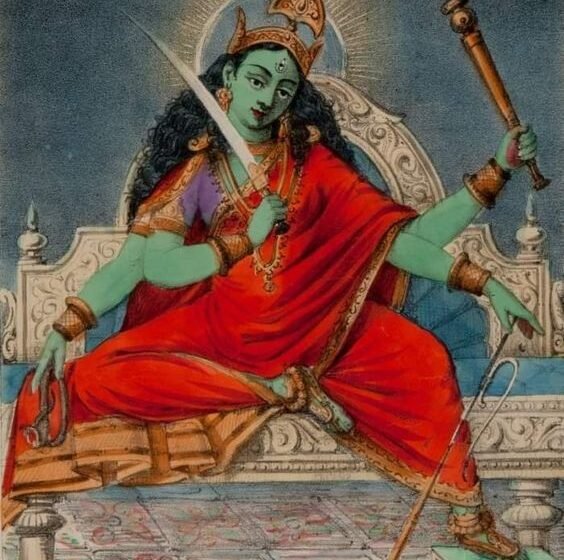
Matangi is the ninth goddess in the Dasa Mahavidya of Shaktism, a sect in which the divine feminine is believed to be the ultimate reality. She is often associated with goddess Saraswati, who is the goddess of learning and music. She is celebrated as the goddess of arts, music, and eloquence and blesses her devotees with the ability to articulate their thoughts effectively and communicate persuasively. However, though Matangi and goddess Saraswati may share similarities as the goddesses’ of wisdom and knowledge, Matangi is distinguished by her association with pollution and impurity, as well as her status of Ucchishta, meaning leftover food. She is sometimes referred to as Ucchishta Chandalini and Ucchishta Matangini, emphasizing on her connection to impurity and outcaste status. Her worship often involves rituals and offerings that reflect her association with impurity and Ucchishta. Devotees may offer leftover food or partially eaten food, fruits to the goddess.
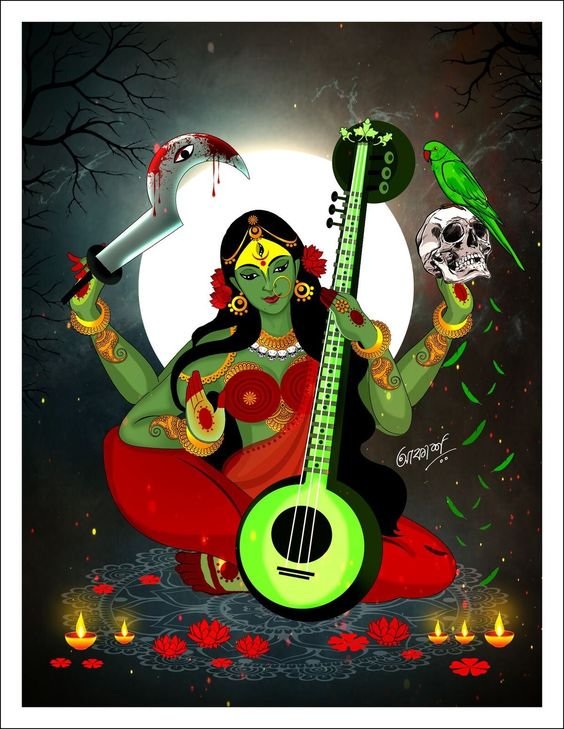
In the scripture of Shaktisamgama Tantra the birth of Ucchishta Matangini is mentioned. According to this tale, Lord Vishnu and Goddess Lakshmi came to visit Lord Shiva and his consort Parvati, and as a gesture of hospitality and reverence, Lord Shiva and Goddess Parvati arranged a grand feast for their esteemed guests. During the feast, as the deities ate, some food accidentally fell to the ground. From the remnants of this fallen food on the ground emerged a stunning maiden. The maiden, Matangi, graciously requested the leftover food from the deities as Prasad, demonstrating her humility and acceptance of all aspects of existence. In granting her leftovers, the deities acknowledged her divine nature and blessed her with the offerings.
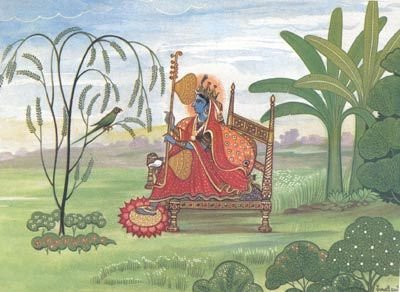
In another narration, Matangi is said to be a forest dweller. She is depicted as a beautiful yet fierce figure living in the wilderness, holding untamed and primal aspects of nature. This legend shows her connection to raw, unrefined wisdom and creativity that exists beyond the cultivated boundaries of civilization. This legend acknowledges with the tantric idea of embracing and transforming the wild and the uncivilized into a source of spiritual power and enlightenment. Tantric texts describe her as a goddess who is worshipped through unconventional practices that often involve reversal of traditional purity rules associated with gods and goddesses’. As rituals for Matangi include offerings of partially eaten or leftover food which symbolizes the acceptance of something that is traditionally unacceptable and rejected.
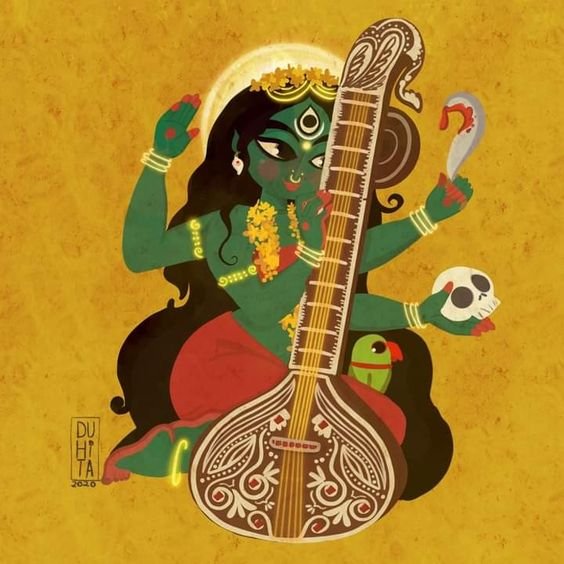
The goddess Matangi is believed to possess a unique blend of intellectual and artistic attributes. As the goddess of inner thought and outward expression, she represents the power of the word and the interplay between knowledge, art, and wisdom. Her association with learning, speech, music, and creativity makes her a compelling deity within the Tantra traditions as well as in the pantheon of Hinduism. Matangi is often shows as the goddess of wisdom and extreme knowledge. She is celebrated as the goddess who presides over thought, speech, and learning. Matangi’s domain and abilities of knowledge and wisdom goes far beyond the classical, formal education that is very popular within Hinduism and esoteric and mystical knowledge. The goddess is considered as the patron of the marginalized and the outcasts, representing wisdom that lies beyond conventional boundaries.
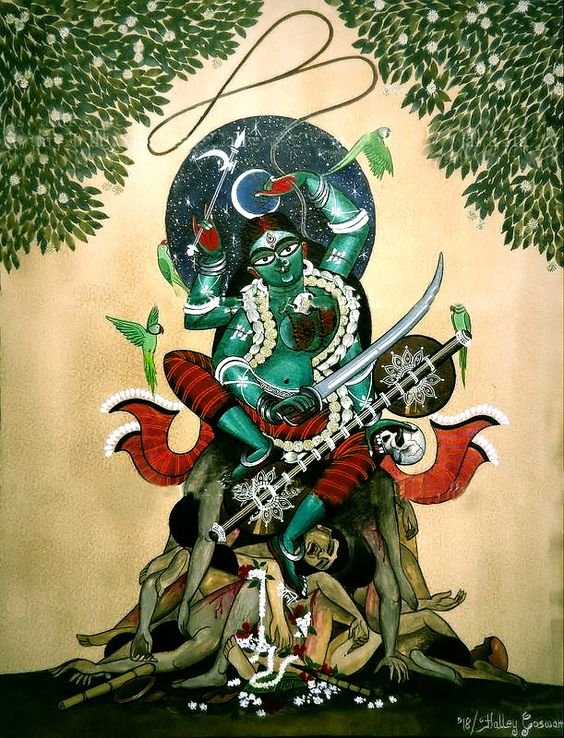
Another of Matangi’s significant attributes is her association with speech and communication. She is known as Vakdevi or the goddess of speech. It is largely believed by the worshippers of the goddess that she governs the realms of verbal expression influencing everything from everyday conversations to other oratory skills and writings. Devotees of the goddess seek her blessings to gain eloquence, persuasive power, and the ability to communicate effectively. This attribute of her emphasizes on the belief that words are sacred and of the importance of being truthful, wise and articulate with speech both in spiritual and worldly matters.
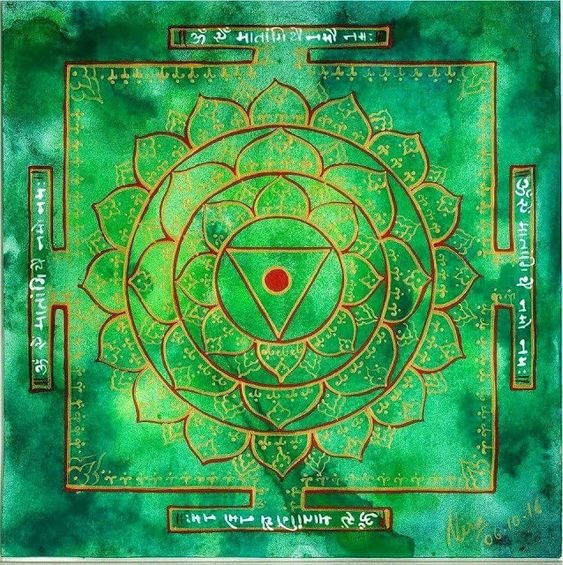
Matangi’s influence can also be seen in the artistic fields, in particular that of music. She is often portrayed with a veena, a traditional Indian musical instrument, symbolizing her mastery over music and the arts. Devotees believe that she inspires artistic creativity and excellence within them, Musicians, artists, and performers invoke her blessings for inspiration and refined skills. Her association with arts and music indicates the aspect of spirituality within creativity, and how artistic expression can become a form of divine worship and connection. Matangi represents the unrestrained, raw creative force that fuels artistic endeavours. This aspect of Matangi is revered in folk traditions and among communities that value oral storytelling, folklore, and indigenous art forms. Her worship involves creative rituals and offerings that reflect the vibrant and diverse nature of artistic expression.
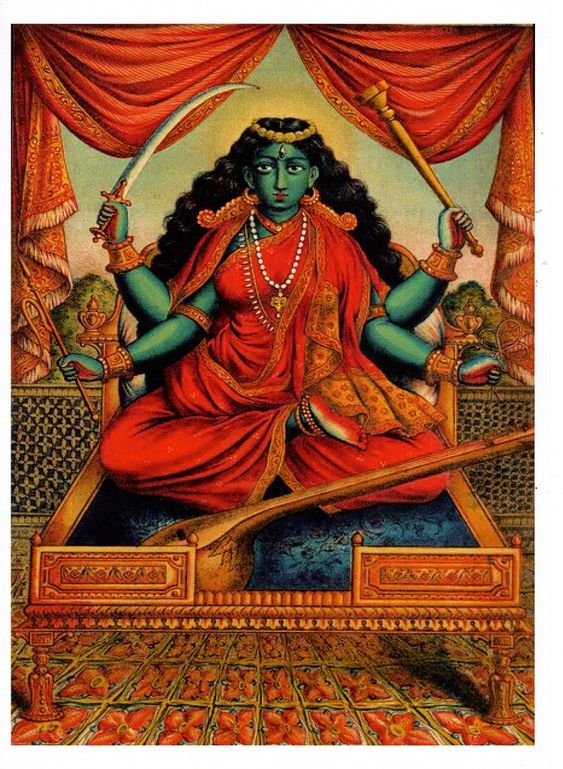
In her iconography, the goddess Matangi is depicted with dark or emerald green skin, adorned with flowers and ornaments that signify her connection with nature and the earth’s bounty. The colour green represents fertility, growth, and the verdant, untamed aspects of nature, linking her to the primal, unrefined forces of creativity and knowledge. In tantric depictions, the goddess is seen sitting on the corpse wearing red garments and red jewellery, and wears a garland of gunja seeds. She is depicted carrying a sword in one hand and a skull cup in the other, and is offered leftover food. In her iconography the parrot and the veena are recurring symbols. The parrot represents her attributes of fluent speech whereas the veena signifies her mastery over creativity and music.
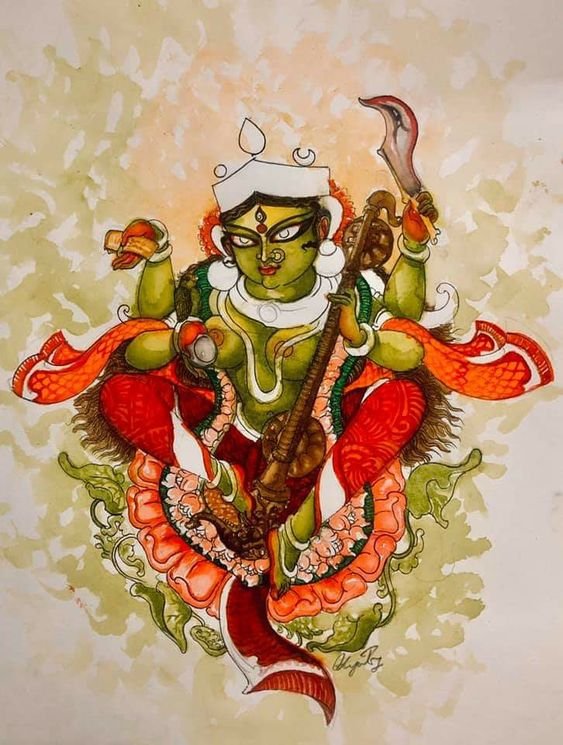
Mantra chanting is at the core of Matangi’s worship. Her mantra is believed to invoke divine presence and blessings. Each syllable in the mantra carries specific vibrations that resonate with different attributes of Matangi’s energy. It is believed that chanting her mantra with devotion and focus will enhance the devotee’s eloquence, wisdom and mastery over the arts. The Matangi yantra is another important symbol in the tantric worship of the goddess. This yantra serves as a focal point for meditation and rituals. Devotees often draw or place the yantra and meditate upon it by internalizing the goddesses’ energies. The offerings that are made to the goddess reflect her unconventional nature. Unlike other deities of Hinduism who are offered cooked and pure foods, Matangi’s offerings often include uncooked and seemingly impure food. Rice, lentils, and sweets are common, but importantly, leftovers or touched food, or food offered with unwashed dirty hands by the devotees are offered to the goddess. These offering of impure and pollution signify her humility and the recognition that divinity exists in all aspects of life, pure and impure alike.
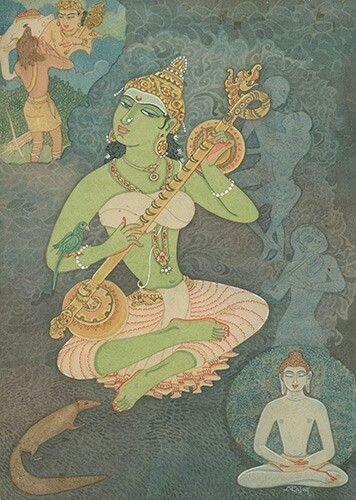
Since Matangi is associated with the music and the arts, her devotees engage in singing devotional songs, playing musical instruments, or reciting poetry in her honour as a form of worship to the goddess. This form of worship is done not only to please the goddess but it also helps the devotees to express their creative abilities. A distinctive aspect of Matangi’s worship is her role in transforming impurities. In Tantric philosophy, the divine is present in all aspects of existence, including those considered impure or taboo. Matangi who is the epitome of impure and taboo embodies this principle. This transformative power is central to tantric worship, wherein overcoming dualities and accepting totalities of existence lead to ultimate spiritual awakening and liberation.
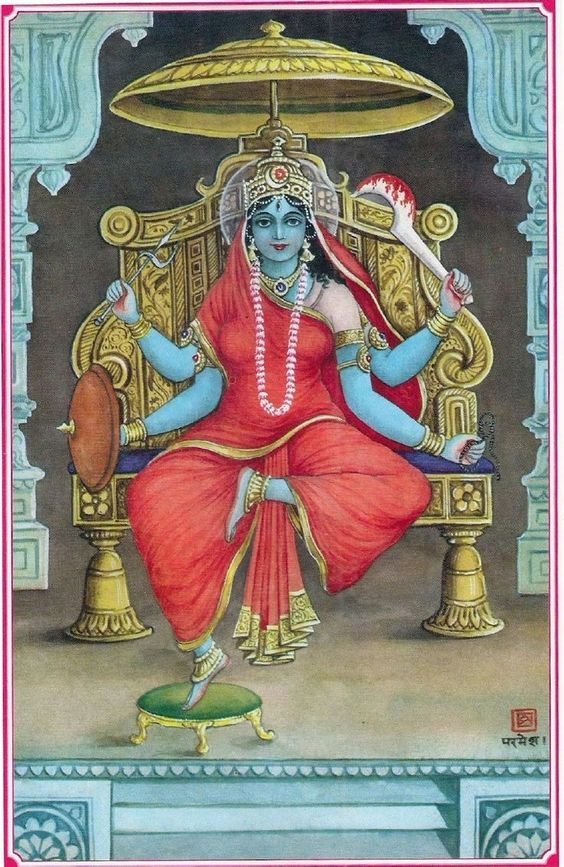
Goddess Matangi represents a powerful and transformative aspect of the Divine feminine. Her worship blends devotion, artistic expression, and the breaking of the conventional boundaries to achieve spiritual enlightenment. Through acts of mantra chanting, yantra worship, singing to devotional music, offerings and meditation devotees of the goddess seek to connect with her divine energy and receive her blessing. By worshipping the goddess, her devotees aspire to attain wisdom, eloquence, creative mastery, and spiritual liberation. She is the unconventional goddess within the Hindu pantheon of conventional gods and goddesses’.


